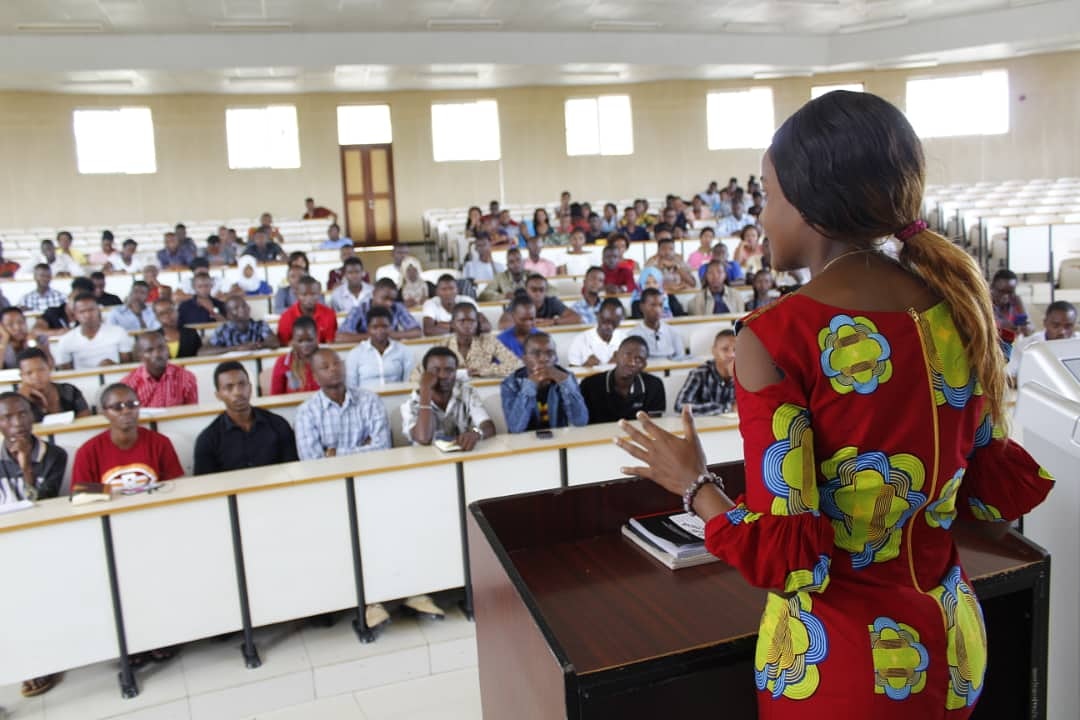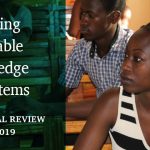
Reviewing our past to find our future
As an introduction to INASP’s annual review 2018-19, Executive Director John Young reflects on programme work over the past year and what we have learnt from it as an organization to feed into future plans.
About this time last year, as part of INASP’s 2017/18 annual review, my predecessor Julie Brittain reflected on how putting research and knowledge at the heart of development requires sustainable organizational change, and our commitment at INASP to be a learning organization and change ourselves. It has been a privilege for me to bring my own experience to this journey over the last seven months and to work with colleagues to learn from our own work and explore some new ideas as we develop our strategy for the next few years.
The past year has seen the start of major work with the DFID-funded SPHEIR programme supporting development of employability skills in higher education, particularly with the TESCEA partnership in Tanzania and Uganda, and the AQHEd partnership in Sierra Leone. We have learned a lot about how to build effective partnerships and how collaborative work can address persistent problems such as the gender gap in East African higher education.
A major element of our Sida-funded work on research and knowledge systems in the Global South over the past year has been a series of dialogue events in Ethiopia, Bangladesh, Tanzania and Uganda with local partners, to understand better the challenges of inequity in research within these countries as well as in an international context. These have helped us to clarify what we mean by equitable knowledge ecosystems, and how we can contribute to them. It has also led to public commitments to working towards them from the Ethiopian Academy of Sciences and the Uganda National Council for Science and Technology.
We have continued to build on and support the AuthorAID project, which now had over 20,000 members from 175 countries, many of whom helped to support thousands of participants on our very successful Massive Open Online Courses in research writing in 2018-19. You can read comments about the courses from participants here, the launch of a new, and very popular, series of online journal clubs here, and some reflections on why our approach to online learning seems to work here.
Journal Publishing Practices and Standards (JPPS), which we launched with African Journal Online in 2017, has continued to gather momentum. In September, it was recognized as a finalist in the ALPSP Award for Innovation. Now, over 900 journals have been assessed through JPPS, with 32% of the Asian and Central American journals having changed levels on reassessment over the past year. Beyond the hard numbers though, feedback from editors has demonstrated the value of JPPS in supporting and strengthening Southern publishing.
Understanding how policymakers use evidence is also vital and remains an important area of work for us. Two years after publishing our Evidence-Informed Policy Making Toolkit we are learning that, for strengthening effective evidence use, it is essential go beyond individual skills development to address the cultural and organizational factors that shape decision-makers’ behaviour. The Context Matters Framework that we developed in collaboration with Politics & Ideas can help organizations to identify the main factors affecting evidence use in their own context. That has now been tested in Ghana and Peru, and policymakers and practitioners think it helped “open our eyes to different forms of evidence” and to “pay attention to the softer elements of evidence use, which are so often overlooked”.
As well as learning from our own experience, we have been actively seeking ideas from other people and organizations involved in similar work.
Arnaldo Pellini talked about the implications of the Fourth Industrial Revolution on evidence use by governments in developing countries and helped inspire our own reflections on this topic. Simon Hearne talked about Outcome Mapping – a people and behaviour approach to planning, monitoring and evaluation that aligns very well with INASP’s approach, and about the Outcome Mapping Learning Community – a global, informal, open membership network for sharing information and facilitating learning, which could provide an interesting model for AuthorAID in the future. Vanesa Weyrauch of Politics & Ideas and INASP’s Clara Richards also shared some other examples of innovative approaches to organizations and leadership taken by organizations in our sector. We are particularly attracted to the ecosystem of innovation, or “Teal Organization” model described by Frederik Laloux in his book Reinventing Organizations.
One of the key features of teal organizations is evolutionary purpose – continuous development to be able to deliver what they sense the world is asking from them. What we are learning from our own work, conversations with partners and other experts and advisers reassures us that our work towards putting research and knowledge at the heart of development remains vital. But in this rapidly changing world we need to continuously re-assess how we can best contribute to this.
We hope you enjoy reading some of our reflections and highlights from the past year and look forward to continuing learning, and sharing our learning, for the benefit of our work in the rest of 2019 and beyond – to 2025.
Photo shows students at University of Dodoma, Tanzania, which is part of the TESCEA partnership

 Previous Post
Previous Post Next Post
Next Post


